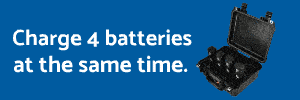I finished degaussing my compass (waving magnet over it in multiple planes to remove any residual magnetism) some time yesterday, performed an advanced IMU calibration in the DJI software and headed out the door for a quick test flight.
I started the unit, got my GPS fix and home position (two sets of green flashing lights) and took off without realizing that I forgot to perform my field calibration of compass (compass dance).
Luckily my phantom was only about 5 feet off the ground when I realized that all of my directional commands were not translating to any logical response. I checked the course lock button and it was not engaged. By the time I switched to ATTI mode (to counteract the junk compass info being utilized in GPS mode) it was too late and my phantom came down on an angle into the grass in my back yard. Nothing was damaged, but a prompt compass calibration after this solved the issue.
This is just a reminder of how important that compass calibration really is.. especially after degaussing and an advanced IMU calibration.
Doh!
I started the unit, got my GPS fix and home position (two sets of green flashing lights) and took off without realizing that I forgot to perform my field calibration of compass (compass dance).
Luckily my phantom was only about 5 feet off the ground when I realized that all of my directional commands were not translating to any logical response. I checked the course lock button and it was not engaged. By the time I switched to ATTI mode (to counteract the junk compass info being utilized in GPS mode) it was too late and my phantom came down on an angle into the grass in my back yard. Nothing was damaged, but a prompt compass calibration after this solved the issue.
This is just a reminder of how important that compass calibration really is.. especially after degaussing and an advanced IMU calibration.
Doh!







